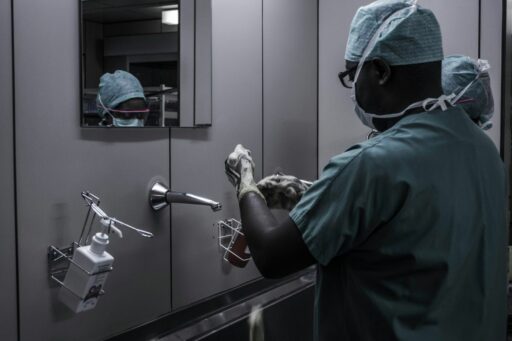Pennsylvania’s Medical Marijuana Program offers a legal avenue for patients with qualifying conditions to access cannabis for therapeutic purposes. As the program continues to evolve, it’s essential for participants to navigate its complexities effectively. This insider’s guide provides a comprehensive overview of the eligibility requirements, dispensary selection, legal compliance, healthcare provider roles, and advocacy efforts within the state’s framework. Whether you’re a new patient or a seasoned user, understanding these aspects can significantly enhance your experience with Pennsylvania’s medical marijuana landscape.
Key Takeaways
- Pennsylvania’s program requires patients to have specific qualifying conditions and symptoms to obtain a medical marijuana card.
- Choosing the right dispensary involves considering factors such as product variety, staff expertise, and location convenience.
- Patients must adhere to state regulations on medical marijuana use to avoid legal issues and ensure their rights are protected.
- Certified medical marijuana doctors play a crucial role in the program, from initial certification to ongoing patient care.
- Staying informed about policy changes and engaging with advocacy groups can help patients navigate future developments in medical marijuana.
Understanding Pennsylvania’s Medical Marijuana Eligibility

Qualifying Conditions and Symptoms
To be eligible for Pennsylvania’s medical marijuana program, patients must meet specific criteria, including a diagnosis of one or more qualifying conditions. The state has outlined a list of approved medical conditions that are recognized for treatment with medical marijuana. These range from chronic pain and severe nausea to more specific ailments such as epilepsy and glaucoma.
- Amyotrophic lateral sclerosis
- Autism
- Cancer
- Crohn’s disease
- Epilepsy
- Glaucoma
- HIV/AIDS
- Huntington’s disease
- Inflammatory bowel disease
- Multiple sclerosis
- Neuropathies
- Parkinson’s disease
- Post-traumatic stress disorder
- Severe chronic or intractable pain
In addition to the qualifying conditions, patients must also exhibit certain symptoms that can be alleviated by cannabis use. It’s important for patients to consult with a certified medical marijuana doctor to discuss their symptoms and potential benefits of the program.
The process of obtaining a medical marijuana card involves several steps, including certification from a registered physician, registration with the state’s program, and submission of the necessary documentation. Patients should ensure they are well-informed about the requirements and prepare accordingly to navigate the system smoothly.
The Process of Obtaining a Medical Marijuana Card
The journey to obtaining a medical marijuana card in Pennsylvania involves several clear steps. First, you must be diagnosed with a qualifying condition by a certified physician. Once you have this diagnosis, you’ll need to register with the Pennsylvania Medical Marijuana Registry and complete an application, which includes providing your state-issued ID and a fee.
After your application is reviewed and approved, you will receive your medical marijuana card, granting you access to dispensaries across the state. It’s important to note that the card is only valid for one year from the date of issue and must be renewed annually.
The process is designed to be straightforward, but it’s essential to follow each step carefully to ensure compliance and avoid delays.
Here’s a quick overview of the steps involved:
- Obtain a diagnosis from a certified physician.
- Register with the Pennsylvania Medical Marijuana Registry.
- Complete the application and pay the required fee.
- Await approval and receive your medical marijuana card.
- Renew the card annually.
Renewals and Recertification
Staying compliant with Pennsylvania’s medical marijuana program requires attention to renewal and recertification deadlines. Patients must initiate the renewal process 60 days before expiration of their patient certification and ID card. The Pennsylvania Department of Health sends an email notification as a reminder, marking the start of your renewal window.
To ensure a seamless renewal, follow these steps:
- Check your email for the notification from the Department of Health.
- Visit the Pennsylvania Medical Marijuana Registry website.
- Complete the necessary forms and submit any required documentation.
- Schedule an appointment with a certified medical marijuana doctor for recertification.
- Pay the renewal fee and await your new ID card.
Timely renewal is crucial to maintain uninterrupted access to medical marijuana dispensaries and to adhere to legal requirements. Missing the renewal deadline can result in a lapse of certification, potentially impacting your treatment regimen.
Selecting the Right Medical Marijuana Dispensary

Factors to Consider When Choosing a Dispensary
When choosing a dispensary, patients should consider a variety of factors to ensure they receive the best possible care and product selection. Location and accessibility are crucial; a conveniently situated dispensary reduces travel time and increases the likelihood of consistent medication availability. Additionally, the quality and variety of products offered can significantly impact patient satisfaction. It’s important to find a dispensary that provides a wide range of strains and forms of medical marijuana to suit individual needs and preferences.
Patients should also assess the dispensary’s reputation. Reading reviews and seeking recommendations can provide insights into the experiences of other patients. The knowledge and friendliness of staff is another important aspect, as well-informed staff can assist with product selection and provide valuable advice. Lastly, consider the pricing and loyalty programs; some dispensaries offer discounts, rewards, and financial assistance programs that can make treatment more affordable.
While the selection process may seem daunting, taking the time to evaluate these factors can lead to a more positive dispensary experience and better health outcomes.
Remember, the goal is to find a dispensary that aligns with your health goals and provides a supportive environment for your medical marijuana journey.
Navigating Dispensary Menus
When visiting a dispensary for the first time, the variety of products can be overwhelming. Understanding the menu is crucial to making informed choices that align with your medical needs. Dispensaries often categorize their products by type, such as flowers, edibles, tinctures, and topicals. Each category can have a range of strains or formulations, each with its own profile of cannabinoids and terpenes.
To help patients navigate their options, here’s a simple breakdown:
- Flowers: Typically labeled with THC and CBD content, strain name, and indica/sativa/hybrid classification.
- Edibles: Available in various forms like gummies, chocolates, and beverages, with clear dosage information.
- Tinctures: Liquid extracts that come with a dropper for precise dosing, often preferred for their ease of use.
- Topicals: Creams and balms for localized relief, not associated with psychoactive effects.
Remember, the staff at dispensaries are there to guide you. Don’t hesitate to ask questions about the products and how they might affect your treatment.
Understanding Dispensary Staff Roles
When visiting a medical marijuana dispensary in Pennsylvania, you’ll encounter various staff roles, each critical to the dispensary’s operation and your experience as a patient. Budtenders are the frontline staff who will guide you through the product selection. They are knowledgeable about the different strains, forms, and dosages, and can provide personalized recommendations based on your qualifying condition.
Behind the scenes, dispensary managers ensure the smooth running of the establishment, overseeing inventory, compliance, and staff training. Pharmacists or medical professionals may also be on-site to answer more complex health-related questions and assist with dosing guidelines.
- Budtenders: Product knowledge, patient interaction
- Dispensary Managers: Operations, compliance, staff oversight
- Pharmacists/Medical Professionals: Health advice, dosing assistance
It’s essential to build a rapport with dispensary staff, as they play a pivotal role in your treatment journey, helping you find the right products and understand how to use them effectively.
Legal Framework and Compliance

State Regulations on Medical Marijuana Use
In Pennsylvania, the use of medical marijuana is regulated under the Pennsylvania Medical Marijuana Act, which outlines specific guidelines for patients, caregivers, and dispensaries. Patients must adhere to possession limits and are prohibited from using medical marijuana in public spaces, operating heavy machinery, or undertaking tasks that would be negligent to perform while under the influence.
One critical aspect of compliance is the intersection of state and federal laws. For instance, it’s illegal to possess both guns and medical marijuana in Pennsylvania. Despite the state’s legalization of medical marijuana since 2016, under the state’s Uniform Firearms Act, medical users cannot own a gun. This creates a complex legal scenario for patients who are also gun owners.
Patients should be aware of the potential legal implications of their medical marijuana use, especially in relation to federal restrictions and the impact on other areas of law, such as gun ownership.
Understanding and following the state regulations is essential for maintaining access to medical marijuana and avoiding legal issues. Patients are encouraged to consult with legal experts or advocacy groups to fully understand their rights and responsibilities.
Patient Rights and Responsibilities
In Pennsylvania’s medical marijuana program, patients have specific rights that ensure their access to treatment is protected, while also carrying certain responsibilities to comply with state laws. Patients have the right to obtain and use medical marijuana as prescribed by a certified doctor, and they must also respect the legal framework that governs its use.
Patients are responsible for securing their medical marijuana card, adhering to possession limits, and only consuming marijuana in allowed forms. They must also renew their card and certification as required to maintain legal status. Understanding these aspects is crucial for a smooth experience within the program.
It is essential for patients to be well-informed about their rights and responsibilities to avoid any legal issues and to ensure they can continue to benefit from the medical marijuana program.
Below is a list of key responsibilities that patients should be aware of:
- Keeping their medical marijuana card up to date
- Understanding and following the possession limits
- Consuming medical marijuana only in legally permitted forms
- Storing medical marijuana securely and out of reach of unauthorized individuals
- Not operating vehicles or heavy machinery under the influence of medical marijuana
Avoiding Legal Pitfalls
Navigating the legal landscape of Pennsylvania’s medical marijuana program requires awareness and understanding of the state’s regulations. Patients must ensure their actions align with state laws to avoid potential legal issues. Here are some key points to consider:
- Always carry your medical marijuana card with you when in possession of cannabis.
- Understand the limits on the amount of medical marijuana you can possess at any given time.
- Be aware of the designated areas where you can legally consume medical marijuana.
- Know that employers in Pennsylvania may have policies regarding medical cannabis use; some may test for cannabis and have the right to fire employees for use, even with a medical marijuana card.
It is crucial to stay informed about the nuances of employment law as it relates to medical marijuana. While patients have certain protections, they are not absolute, and the intersection of federal and state law can create complex situations.
Remember, ignorance of the law is not a defense. Staying up-to-date with legal changes and consulting with legal experts when in doubt can help you navigate the program confidently and legally.
The Role of Healthcare Providers in the Program

Finding a Certified Medical Marijuana Doctor
To participate in Pennsylvania’s medical marijuana program, patients must first find a certified medical marijuana doctor. These doctors have undergone special training and are registered with the state to assess patients for eligibility and recommend medical cannabis if appropriate.
- Book an Appointment: Use platforms like Veriheal to book an appointment with a licensed medical professional in your area.
- Consultation: During the consultation, the doctor will evaluate your condition and discuss potential benefits and risks associated with medical marijuana use.
- Approval: If you meet the criteria, the doctor will approve you for medical cannabis use and provide the necessary certification.
It is essential to ensure that the doctor you choose is certified by the state to avoid any legal or health complications. This certification indicates that the doctor is knowledgeable about the medical marijuana program and can guide you through the process effectively.
The Doctor-Patient Relationship and Ongoing Care
Establishing a strong doctor-patient relationship is crucial for the effective management of a patient’s medical condition with the aid of medical marijuana. Trust and communication are the bedrock of this relationship, ensuring that patients feel comfortable discussing their symptoms and treatment effects. Regular follow-ups and open dialogue allow for adjustments in dosage or strains as needed to optimize therapeutic outcomes.
- Initial consultation to determine suitability for medical marijuana
- Ongoing assessments to monitor effects and side effects
- Adjustments to treatment plan based on patient feedback
- Education on responsible use and potential interactions with other medications
The evolving landscape of medical marijuana research and regulations necessitates a dynamic approach to patient care. Healthcare providers must stay informed and adaptable to provide the best possible guidance to their patients.
Patients should be proactive in their care, asking questions and expressing concerns. It’s also important for patients to report any changes in their condition or how they respond to treatment. This collaborative effort can lead to a more personalized and effective treatment plan.
Impact of Telemedicine on Access to Care
The advent of telemedicine has significantly altered the landscape of healthcare, and its impact on the medical marijuana program in Pennsylvania is no exception. Telemedicine has expanded access to care for patients who may face challenges such as mobility issues, lack of transportation, or those living in remote areas. With virtual consultations, obtaining a medical marijuana card has become more convenient and less time-consuming.
Patients can now connect with certified medical marijuana doctors through video calls, ensuring continuity of care and easier follow-ups. This has been particularly beneficial during times when in-person visits are not feasible. Here’s a brief overview of the process:
- Schedule a virtual appointment with a certified doctor.
- Attend the consultation from the comfort of your home.
- Receive a digital certification for medical marijuana use.
- Apply for the medical marijuana card online.
The integration of telemedicine into the medical marijuana program underscores the commitment to making healthcare more accessible and patient-centric. It represents a significant step forward in accommodating the needs of patients across Pennsylvania.
Advocacy and Future Developments

Staying Informed on Policy Changes
In the ever-evolving landscape of medical marijuana policies, staying informed is crucial for patients and caregivers alike. The legalities surrounding medical marijuana can change rapidly, and being up-to-date ensures compliance and maximizes the benefits of the program.
To keep abreast of the latest developments, consider the following resources:
- Marijuana News website: A comprehensive source for recent updates, featuring archives, uncategorized categories, and the ability to comment. Remember, age verification is required.
- State health department announcements: Official statements and regulatory changes are often posted here first.
- Patient advocacy groups: These organizations often provide newsletters and alerts about policy shifts.
It’s not just about following the news; it’s about understanding how changes can impact your access to care and your rights as a patient.
By dedicating a small portion of your time each week to review these sources, you can ensure that you remain compliant with current regulations and make informed decisions about your healthcare.
Patient Advocacy Groups and Resources
Navigating the medical marijuana landscape in Pennsylvania can be complex, but patient advocacy groups play a crucial role in providing support and resources. These organizations offer guidance on legal rights, educational materials, and can assist in connecting patients with healthcare providers experienced in medical marijuana treatment.
- Americans for Safe Access – Focused on ensuring safe and legal access to cannabis for therapeutic use and research.
- Marijuana Policy Project – Works on reforming marijuana laws and provides information on medical marijuana policy.
- National Organization for the Reform of Marijuana Laws (NORML) – Advocates for the rights of patients and adult consumers, and provides legal assistance.
It is essential for patients to stay informed and empowered through these resources to effectively navigate the program and advocate for their own health needs.
Additionally, many of these groups offer community forums and support networks where patients can share experiences and advice. Staying connected with such communities can provide invaluable peer support and insights into managing treatment with medical marijuana.
Emerging Trends in Medical Marijuana Research
The landscape of medical marijuana research is rapidly evolving, with new methodologies and technologies at the forefront. New research tools are being developed to provide clearer insights into the efficacy of cannabis as a therapy, addressing a significant gap in clinical data. This is a pivotal moment for both researchers and clinicians who are seeking to understand the full potential of medical marijuana.
- Advances in genetic profiling of cannabis plants are leading to a better understanding of strain-specific effects.
- Clinical trials are increasingly incorporating cannabis-based medicines, aiming to provide robust data on their therapeutic value.
- The use of big data analytics is helping to identify patterns and outcomes in medical marijuana usage on a large scale.
The integration of these new research tools and approaches is expected to clear some of the smoke around medical cannabis, offering a more transparent view of its benefits and limitations.
Conclusion
As we’ve journeyed through the intricacies of Pennsylvania’s Medical Marijuana Program, it’s clear that the landscape of medical cannabis is ever-evolving. From understanding eligibility to navigating dispensaries, patients have a wealth of resources at their disposal to make informed decisions about their health. While challenges remain, such as ensuring consistent access and combating stigma, the program’s growth reflects a broader shift towards acceptance and recognition of marijuana’s therapeutic potential. Whether you’re a patient, caregiver, or medical professional, staying informed and engaged with the program is crucial for maximizing its benefits and advocating for continued progress.
Frequently Asked Questions
What conditions qualify for medical marijuana use in Pennsylvania?
In Pennsylvania, conditions such as chronic pain, PTSD, cancer, and multiple sclerosis, among others, qualify for medical marijuana use. A full list of qualifying conditions is available on the Pennsylvania Department of Health website.
How do I apply for a medical marijuana card in Pennsylvania?
To apply for a medical marijuana card, you must have a certified physician confirm that you have a qualifying condition. Then, register with the Pennsylvania Medical Marijuana Registry and complete the application process, which includes a fee.
What should I consider when choosing a medical marijuana dispensary?
When selecting a dispensary, consider factors like product quality, location, price, staff knowledge, and the variety of products offered. It’s also important to ensure the dispensary is licensed and compliant with state regulations.
Are there any legal restrictions on using medical marijuana in Pennsylvania?
Yes, patients must comply with state regulations, such as not driving under the influence of marijuana, not using it in public places, and not taking it across state lines. It’s important to familiarize yourself with all the rules to avoid legal issues.
How can I find a certified medical marijuana doctor in Pennsylvania?
You can find a certified medical marijuana doctor through the Pennsylvania Department of Health’s website, which maintains a list of physicians who have completed the required training to certify patients for the program.
Where can I stay informed about changes to Pennsylvania’s medical marijuana policies?
To stay informed about policy changes, you can follow updates from the Pennsylvania Department of Health, join patient advocacy groups, subscribe to newsletters, and attend related events or seminars.





